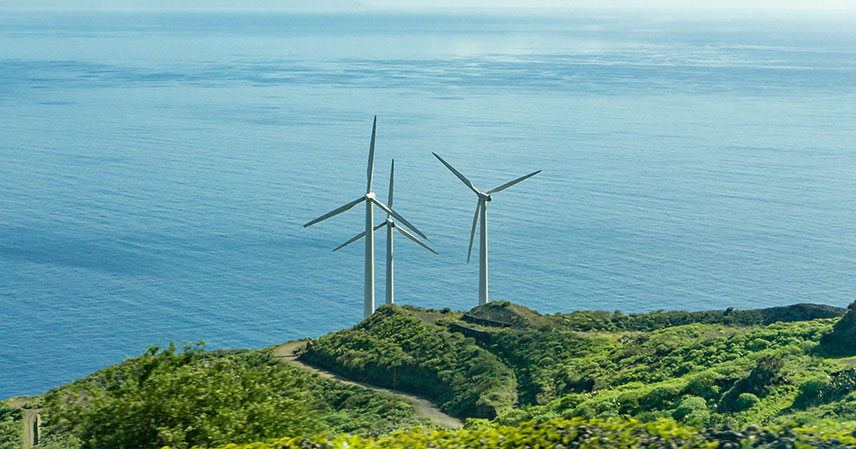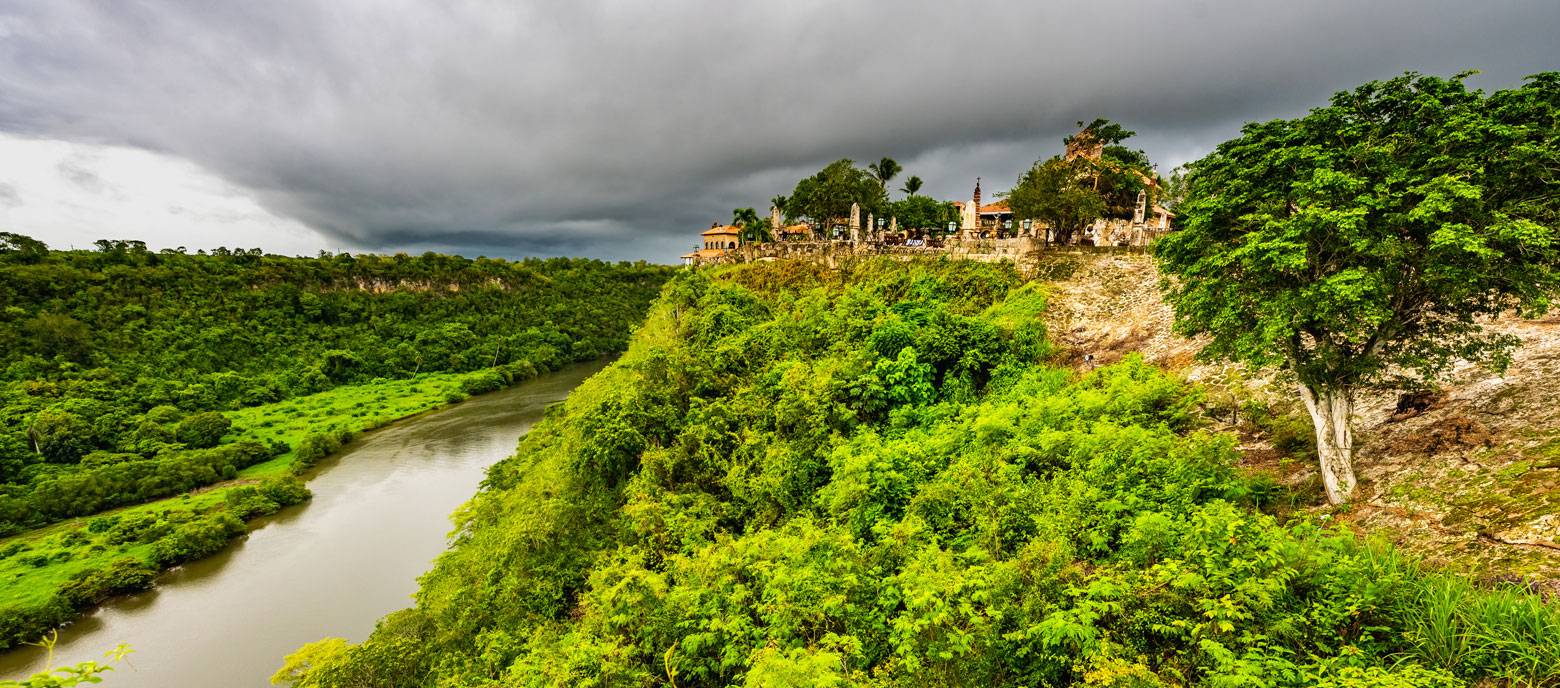Feature
Momentum for the energy transition
The energy transition in the Dominican Republic is well underway. On behalf of the German Environment Ministry, the Deutsche Gesellschaft für Internationale Zusammenarbeit (GIZ) GmbH has been supporting the Caribbean country since 2017 in establishing a secure, cost-effective and sustainable energy supply. This called for a degree of creativity. GIZ helped to develop, for example, a digital forecasting programme for wind and solar power generation. The system continuously collects and analyses data and produces hourly updates on this basis. This is important, because the intermittent nature of wind and solar power feeding into the grid is a real problem, and efficient management poses a challenge. ‘Planning has to be as precise as possible to minimise the use of fossil fuels from our reserves and keep costs and emissions as low as possible,’ explains Manuel San Pablo, General Manager at OC-SENI, the Coordinating Body of the Interconnected National Electric System in the Dominican Republic.
The tool, which has been independently funded by OC-SENI since 2021, proved to be exactly what was needed: fluctuations can now be predicted and planned for with much greater accuracy. There is also a new, free app that provides real-time information on electricity generation, renewable energy fed into the grid and changes in CO2 emissions.
An end to blackouts
Before embarking on the energy transition, the situation in the Dominican Republic was dismal. At the turn of the millennium, persistent power cuts remained a feature of everyday life outside the major tourist areas. Rural regions were often completely cut off. Since then, the country has invested heavily in its energy system to secure the power supply. Initially, however, it relied on fossil fuels. And since the country is dependent on imports of raw materials – primarily crude oil, gas and coal – these have a negative impact both on the climate and on government finances. Price fluctuations on the global market, such as those recently caused by the war in Ukraine, make it difficult to plan with any certainty. They also drain the coffers.
Renewable energies offer an alternative to smoke-belching power plants. Solar and wind, in particular, have huge potential on the Caribbean island. But initially there was considerable concern about their introduction in the island nation. ‘The 2007 renewable energy law still referred to variable renewables as energias no-gestionables,’ Manuel San Pablo recalls. This translates as ‘unmanageable energy sources’. Not exactly a positive concept.

Dispelling myths with data
Politicians, the business community and the general public had a long list of misgivings. People worried, for example, that electricity prices might rise if the need for investment was too great at the outset. Others warned that fluctuations could destabilise the power grid. To dispel concerns, technical studies were carried out and then presented at training courses for technical staff. A campaign on social networks and through social media provided facts about renewables.
Wind and solar power tripled
In the meantime, the sceptics and critics have been won over. Over the past three years, electricity generated from the wind and sun has tripled. According to Clemens Findeisen, the project officer responsible at GIZ, both the public and private sectors in the Dominican Republic are now adopting renewables – and national banks have recently even started granting loans for renewable projects. Around 10 per cent of the country’s energy demand in 2021 was met by wind and solar energy, and around 8 per cent by biomass and hydropower plants. The total installed renewable energy capacity in the country of around 11 million people is currently 800 megawatts.

An advocate of the energy transition, President Luís Abinader has signed power purchase agreements with the private sector for an installed capacity of around 800 megawatts from solar energy since taking office in 2020. The government has set a target of generating at least 30 per cent of electricity from renewable sources by 2030. However, there remain a number of obstacles, as Energy Minister Antonio Almonte spelled out in an exclusive interview with akzente.
Renewables have also caught on with end users, who are now installing solar panels on their roofs. Environmentalists on the Caribbean island have raised few objections – not even against wind farms. ‘On the contrary,’ San Pablo explains. They have been very supportive and have even visited the installations.’
Renewable energy for remote villages
For remote villages like Sabana Real, on the border with Haiti, electricity from renewable energy sources generated locally is the only affordable solution. A conventional connection to the national grid would be too expensive. So the village has been without electricity until now. By the end of 2022, however, a photovoltaic system with battery storage will be installed there as part of the project with GIZ. The plant is a stand-alone installation, unconnected to the national grid, which in future will be maintained and serviced by the Dominican distribution company EDESUR. 250 villagers in Sabana Real used to rely on candles and torches for light. Soon they will have 24/7 access to green electricity that is 100 per cent clean and safe.
Within the scope of the International Climate Initiative (IKI), GIZ is working on behalf of the Federal Ministry for the Environment, Nature Conservation, Nuclear Safety and Consumer Protection (BMUV) to help the Dominican Republic achieve its climate goals. We work closely with the Ministry of Energy and Mines and other partners from the Dominican energy sector to foster the use of renewables and reduce greenhouse gas emissions.
Contact: Clemens Findeisen, Clemens.findeisen@giz.de
May 2022
Renewable energy in the Dominican Republic - an overview
(Spanish only)
